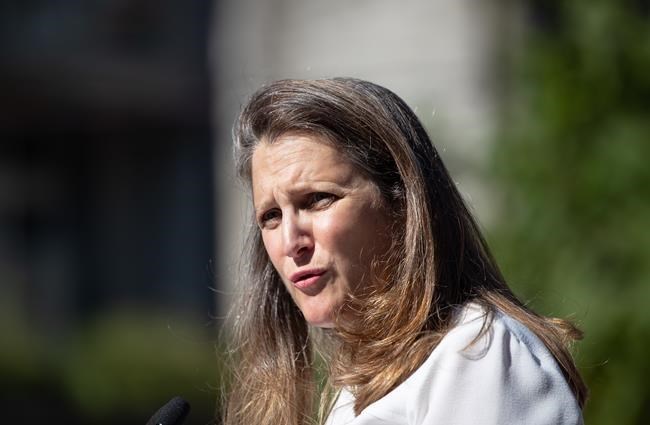OTTAWA — The federal government is tapping the brakes on its plans to phase out pandemic aid programs this summer, deciding instead to freeze benefits at current levels and extend help by an extra month beyond the previously planned end date.
The decision means that wage and rent subsidies for businesses, and income support for workers out of a job or who need to take time off to care for family or stay home sick, will last until Oct. 23.
Rates for the wage and rent subsidies will hold at current levels until September, holding off on the previously planned decline.
Similarly, the recovery benefit will keep paying out at $300 per week, and four more weeks of eligibility will be added to a maximum of 54 weeks.
The same extra weeks will be available to workers who have exhausted their employment insurance benefits.
The recovery caregiving benefit will be available at $500 a week until Oct. 23, but with no change to the current maximum of 42 weeks per household.
The recovery sickness benefit, meanwhile, will also now be available at $500 a week until Oct. 23, but with no change to the maximum of four weeks.
The government estimates the revamped aid package will cost an additional $3.3 billion, with two-thirds of that for the recovery benefits, and one-third for the business supports.
As of July 18, the government had paid out $87.1 billion through the wage subsidies and $5.24 billion more in rent relief since the programs launched. As of July 25, the three "recovery" benefits had combined to pay out $26.9 billion.
The Liberals had planned to phase out the pandemic aid, foreseeing enough of a recovery by the fall that many of the measures would no longer be needed.
Finance Minister Chrystia Freeland said Friday that there were still too many businesses and workers who are not fully back on their feet yet, noting that it took the country a little longer to stamp out the third wave of the pandemic than the government expected.
"And I know all of us are watching carefully the Delta variant and are concerned about that," she said at an event in Hamilton, Ont.
"From the government's perspective, it is essential to do everything we can to be sure the country's economic recovery is fast and robust, and that no one is left behind."
Statistics Canada said Friday its preliminary estimate was that the economy grew by 0.7 per cent in June following two months of declines, and that real gross domestic product grew at an annualized rate of 2.5 per cent in the second quarter.
Total economic activity at the end of June was still about one per cent below pre-pandemic levels, and the labour market was about 340,000 jobs, or almost two per cent, below the levels seen in February 2020.
The Canadian Federation of Independent Business said the government's announcement provides some additional runway for many small businesses still trying to get back to normal sales levels.
The group, which represents 95,000 small businesses nationwide, is also asking for the government to extend the aid until the recovery is more advanced.
"Small firms are keen to replace subsidies with sales, but many firms continue to face a significant lack of demand due to capacity restrictions, border closures and customers hesitant to return to normal activities," president Dan Kelly said in a statement.
By extending the benefits now until October, and holding the wage and rent subsidies at current rates until September, the Liberals have locked in changes before an expected election call next month that would largely put a pause on policy-making.
They could yet be extended further: Budget measures approved by Parliament in June give the government the ability to extend the aid by one more month, if necessary, to the end of November.
NDP Leader Jagmeet Singh said an extra month of aid, while welcome in the face of the threat of a fourth wave, isn't enough for people in hard-hit sectors like tourism that may not see a rebound until next year.
"The Liberals are more focused on plunging the country into an election in a pandemic," he said in a statement. "Canadian families and small businesses don’t need an election now. They need help for as long as we are in a pandemic."
On Friday, Freeland also made a plea for people to get vaccinated if they are eligible and have not already done so.
"The single most important economic policy in Canada today is for everyone who can get vaccinated to go out and get vaccinated," she said. "We have done tremendously well, but there's still that last mile to go."
This report by The Canadian Press was first published July 30, 2021.
Jordan Press, The Canadian Press
Note to readers: This is a corrected story. An earlier version incorrectly reported that all three recovery benefits would pay out at $300 per week to a maximum of 54 weeks. In fact, the recovery caregiving benefit and recovery sickness benefit will pay out at $500 a week to a maximum of 42 weeks and four weeks, respectively.

